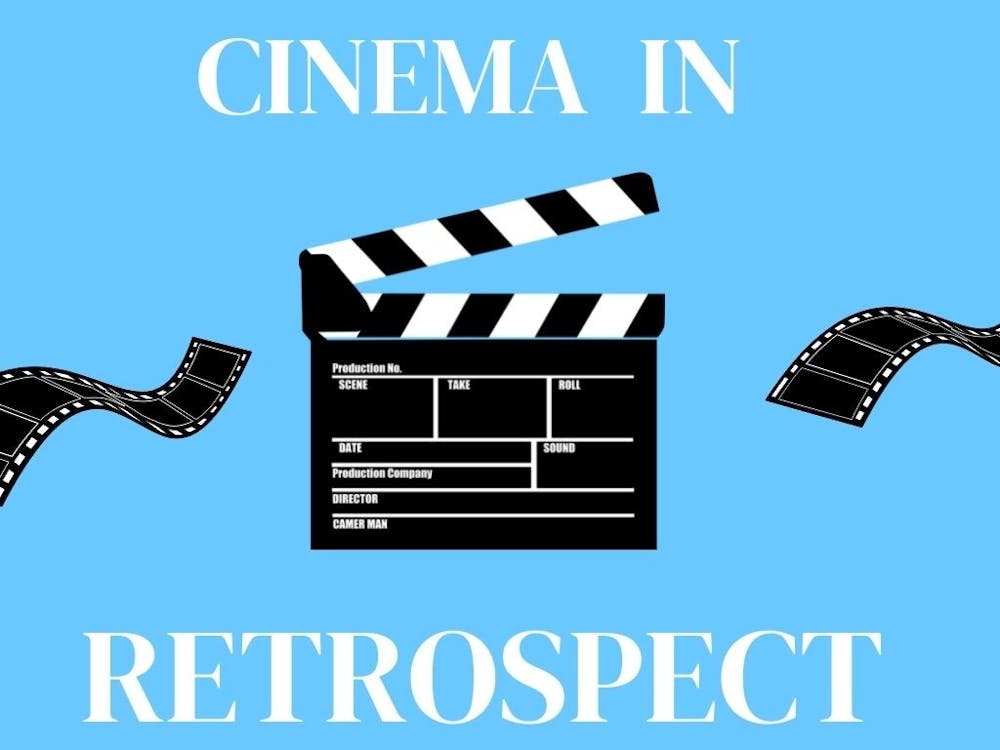Editor's note: The views and opinions expressed in this article do not reflect those of The Collegian.
I want to open this article with a quick refresher about the goals of this column. Essentially, my goal consists of two main parts: to discuss older, lesser-known films and to explore how such films might provide insight into conceptions of self, identity and personhood. By combining these, my objective is not only to explore the retentive powers of cinema as an art form but also to point toward how modern perspectives of the self might reflect prior such depictions. Additionally, my goal this semester is to gradually shift toward a possible new mode of parsing film texts as guided by an assessment of the linked qualities of loss and gain.
Guillermo del Toro’s first feature film, "Cronos," sets out to accomplish an ambitious project. Namely, to unite alchemical, Christological and vampiric understandings of the world into a singular encompassing atmosphere of ideology and iconography. Its aim — like those of its characters — is to suture together the innate fabrics of life into a Frankensteinian, whole cloth homunculus. In a primordial sense, the film confronts the outer boundaries of actualization, seeking to negate the limits of flesh and interrogate the kinds of exchanges that play out between corporeal and spiritual strata. To this end, the film’s plot and aesthetics serve as an intermediary facilitator. "Cronos" bears witness to a microcosm of personal and ideological forces and is itself designed to harmonize its images with the spectatorship of the viewer. It is not a long film, nor especially complex. Rather, its engineered locus of operation is, at least partially, the mind's eye of the audience.
The crux of the film is the rediscovery and accidental employment of the eponymous Cronos device. It's a small round object that, when properly fueled and applied, can sustain its user with a kind of pseudo-immortality. The film’s opening explains that the device was made by an alchemist in the 16th century as part of his dual quest for the philosopher’s stone and eternal life. A construction crew discovers his shrunken corpse four hundred years later in a collapsing building. The nature of his death — because he didn’t have any living relatives and his belongings were put to public auction — erases all traces of the device. Almost 60 years later, however, Jesús Gris, the elderly owner of a pawn shop, rediscovers it buried in a statue. Gris is initially put off by its insectoid design, and accidentally injures himself by unknowingly activating it. Over the next couple of weeks, he gradually gains mastery over it as his youth returns to him. The object’s one conceit, however: the user must sustain themselves with human blood.
Although they have been alluded to, the three main axes of cultural thematic should be more explicitly addressed. Alchemy, here, refers both to an in-universe practice of life extension as well as a historical philosophy, religion and science. Most relevant are its applications to dissolution and transmutation. One of alchemy’s common objectives was to divine the recipe for a universal solvent. A substance capable of dissolving any matter equally, thus granting its possessor a degree of dominance over the material world. Another common desire was to discover the recipe for a philosopher’s stone: a theoretical device able to transmute any form of matter into any other. Although this is most often conceived as a physical process it also can be understood as a spiritual one, i.e., the transmutation of the soul.
Christology, here, refers to the Christian mythos of Jesus Christ as the son of God. "Cronos"’ most obvious parallel is its main character, Gris – who even comments on his nominal similarity at the end of the film. Also important here is Christology’s connection with resurrection, incarnation and transubstantiation. Christology emphasizes both the corporeal nature of the Christian divine and the spiritual nature that the non-divine can be vested with. In a looser sense, it too is a philosophy of transmutation or at least of unfixed-ness.
Finally, vampirism is referring to the general necromantic practice of drawing life from another human’s blood. The transformative nature of vampiric lineage means that when a subject is infected or turned, they become reborn and dehumanized.
"Cronos" not only synthesizes these three around their shared throughline but then also asks what it means for them to be connected as such. The immortal bodies in "Cronos" are fueled by transmutation, transubstantiation and vampirism. These reconstitutions, however, change them equally into immoral bodies. When the withered alchemist is discovered at the beginning of the film, he is surrounded by a lurid supply of sanguine sustenance. Similarly, as Gris becomes younger, he slips into an undead, non-human form. His flesh transmutes into a peeling, pulpy mass and his autonomy is supplanted by lust for perpetuation. His transformation is not only a matter of bodily age but also of purity. Both alchemical and Christian doctrines are concerned with the processes of purifying bodies — of shifting sin into absolution. The power of the Cronos device, then, is to realize the Christological ideal onto anybody. When other characters learn of its existence, they suddenly regard Gris with avaricious violence — coveting the power for their own. The dogma of salvation is enough to foster hostility.
Ultimately, the condemnation that "Cronos" offers is not of self-improvement but of Christianity’s very notion of sin as a blemish. The degeneration in the film does not come from trying to be better but from seeing oneself as being markedly worse. Gris’ myriad deaths and rebirths in the film are symbolic of the ideological maelstrom he has fallen victim to. The exact observations that the film is making shift from moment to moment, and, in lieu of a definitive end, the film is structured around the possibility of a continuing open dialectic. Alchemy’s stated presence in the film is obvious enough, but the larger presence is a spiritual one that it imbues onto the body of the film itself. "Cronos" is a film about finding oneself, having oneself get lost and recognizing the innate linkages between the lost and found. It is at once a matter of minutia and integration into a multifaceted whole.
What I have offered here should be considered as an entry point into reading the film. I do not have the space to fully explore these lines of argumentation — nor do I think I have an entire mastery of them myself. For any interested parties, "Cronos" can be found for free on HBO Max.
Contact columnist Henry Skalbeck at henry.skalbeck@richmond.edu.
Enjoy what you're reading?
Signup for our newsletter
Support independent student media
You can make a tax-deductible donation by clicking the button below, which takes you to our secure PayPal account. The page is set up to receive contributions in whatever amount you designate. We look forward to using the money we raise to further our mission of providing honest and accurate information to students, faculty, staff, alumni and others in the general public.
Donate Now


